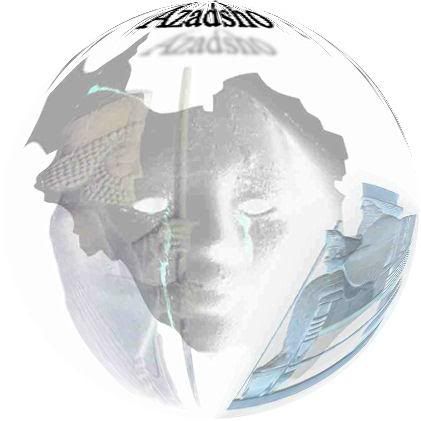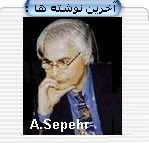آزاد شو

Wednesday, September 26, 2007
Columbia University

Iran 's President Mahmood Ahmadinejad is scheduled to speak at Columbia University on Monday September 24th. This arrangement is not accidental. The event would have not been possible without the tireless and focused efforts of the well known Tehran advocate Dr. Gary Sick, an influential figure in Columbia .
As it has already been examined in a recent article "Pro-Ayatollahs Disinformation and Manipulation Campaign by Washington Think Tankers"1, the Iranian lobby in US could not exist without generous assistance of some American interest groups and proxies such as Dr Gary Sick, the American Iranian Council in which Sick is a board member of, and his circle of cohorts.
In the past two decades Dr. Sick has been a tenacious activist in advancing the interests of Iranian Ayatollahs. His dossier of friendship with Tehran includes positions such as the directorship of The Gulf/2000 Project established in 1993 in the School of International and Public Affairs at Columbia University . This project is mainly financed by the oil industry and is focused in engaging Tehran .
When Mohammad Jafar Mahallati, the former Iranian deputy foreign minister and ambassador to the UN, was terminated from his official positions to commence his duties in "unofficial diplomacy", Dr. Sick's active influence secured him a position in Columbia from 1991 to 1997. The list of Gary Sick's collaborations with Mahallati is long. 2
In 1997, Dr. Gary Sick worked intensely with Hossein Alikhani, an Iranian closely related to the Iran 's ruling mullahs, to found the "Center for World Dialogue". Gary Sick is a founding board member in this organization.3 Alikhani is a felon who in 1992, pled guilty to the charges of violating anti-terrorist sanctions 4 and spent some time in US federal prisons. Recently Iran 's Ayatollahs awarded him the deed for the US embassy complex in Tehran5 for his pain and suffering in American prisons. The collaboration between Sick and Alikhani has been long and multifaceted and has been well received by the mullahs in Iran .
Dr. Sick has shown a distinct quality. He, under all circumstances, has been able to discover a reason to support the Iranian theocratic regime. For example, under the "moderate" president Rafsanjani, the wave of Iranian international terrorism reached new summits and the bombing of the Jewish center in Argentina was accompanied by hundreds of assassinations against the Iranian dissidents abroad. Dr. Sick however cleverly discovered a creative explanation6:
"The pattern of actions suggests that these practices originated in the early 1980s, when the Islamic leadership faced a massive domestic terrorist threat. The Iranian response to this threat was apparently to establish one or more covert units, possibly buried deep within the intelligence agencies, to hunt down and destroy perceived threats to the revolution. This kind of shadow warfare is hardly unique to Iran . But the evidence suggests that these units in Iran have acquired a life of their own, launching operations on an opportunistic basis with little interference by the central authorities and no apparent coordination with Iran 's foreign policy agenda."
For Dr. Sick, the sophisticated machine of Iranian terror is the same as the Japanese soldiers lost in Pacific's remote islands during the World War II. Similarly, Dr. Sick's view of the Iranian sponsored terrorism in the Middle East is very imaginative: 7
" Iran 's support for terrorist activities carried out by Hamas is a matter of dispute. Iran claims that its support for Hamas is no different than the Saudi's support. They give money for clinics and medical needs, but that money is used for terrorism. Iran has a different view on this. So it's a matter of dispute. As for the peace process, at this point Iran feels vindicated. They have been saying all along that the Israeli-Palestinian deals are a sham and that Israel will not keep its promises. With what Netanyahou has done so far, Iran 's position is getting more support from the Arab states.”
When human rights were still among the US conditions in dealing with IRI, in an article under the title of: “The Stalemate in US-Iran Relations” [1], and in an attempt to correct the US policy towards Iran , Gary Sick writes in part:
“Present US policy calls for Iran to change its behavior in six different areas (active opposition to the peace process, fishing in troubled water in other countries, terrorism, purchases of conventional arms, acquisition of weapons of mass destruction, and human rights). If the Iranians were miraculously to comply, our policy statements mention no benefits that they could anticipate because of their newfound enlightenment. ..Assuming a dialogue were to begin, the US would have to (1) define more clearly which of these behaviors are more important, (2) offer a more precise definition of what we would expect from Iran, and (3) give some indication of what we might be prepared to offer in return“ … “In reality, we might have to settle for something less.”
In what follows in his article, the condition of human rights in Iran just vanishes! This is the “unimportant” area that he was trying to take out of the conditions set for renegotiation with the regime.
He then elaborates on this and writes: 8
“The revolution is over, and the fiery slogans have a hollow ring. Khomeini said the revolution was not about the price of melons, but it turns out that it is! The demonstrations in Iran are not about clerical rule or a return to the monarchy or even about democracy and human rights. “
Dr. Sick’s support to the Iranian regime does naturally include the ultra-fascist president Ahmadinejad. After his first appearance before the UN assembly in 2005 and his shocking declarations, Sick found new qualities in the president and told the CFR interviewer Gwertzman: 9
"I was taken with the fact that Ahmadinejad is an engineer with no foreign experience at all, who has only been president for about a month. I think he learned his brief pretty well. He handled himself well not only in the speech but also in his discussions with CNN and Time magazine and others who had interviews with him. I think he came through with some constructive ideas. … He's a very prideful man, and I think that sense of Iranian pride is one that may be very difficult for the West—and the United States in particular—to deal with."
On September 24th, that "prideful man", responsible for the daily torture of his people, will talk in Columbia . He needs public relations support for his nuclear and regional domination ambitions. Count on Dr. Sick and his usual circle of friends to be there and extend a supportive hand. All the same, Columbia University 's tacit acceptance of this advocacy can not be justified under the disguise of academic freedom.
Mohammad Parvin is an adjunct professor at the California State University , an Aerospace Specialist, and Founding Director of the Mission for Establishment of Human Rights in Iran (MEHR) - http://mehr.org/
Hassan Daioleslam is an independent Iran Analyst and writer http://iranianlobby.com/
Archives
May 2004 June 2004 July 2004 August 2004 September 2004 October 2004 November 2004 December 2004 January 2005 February 2005 March 2005 April 2005 May 2005 June 2005 July 2005 August 2005 September 2005 October 2005 November 2005 December 2005 January 2006 February 2006 March 2006 April 2006 May 2006 June 2006 July 2006 August 2006 September 2006 October 2006 November 2006 December 2006 January 2007 February 2007 March 2007 April 2007 May 2007 June 2007 July 2007 August 2007 September 2007 October 2007 November 2007 December 2007 January 2008 February 2008 March 2008 April 2008 May 2008 June 2008 July 2008 August 2008 September 2008 October 2008 November 2008 December 2008 January 2009 February 2009 March 2009 April 2009 May 2009 June 2009 July 2009 August 2009 September 2009 October 2009 November 2009 January 2010 February 2010 March 2010 April 2010 May 2010 June 2010 July 2010 September 2011 February 2012
Not be forgotten
! بختيار که نمرده است

! بختيار که نمرده است

بخشی از نوشته های آقای دکتر امير سپهر ( بنيانگذار و دبيرکل حزب ميهن ) :

آبروی روشنقکران مشرق زمين

رسالت من بعد از نوژه

بی تفاوت نباشيم

نگاه خردمندانه به 28 مرداد
آبروی روشنقکران مشرق زمين

رسالت من بعد از نوژه

بی تفاوت نباشيم

نگاه خردمندانه به 28 مرداد

رسالت من بعد از نوژه

بی تفاوت نباشيم

نگاه خردمندانه به 28 مرداد
رسالت من بعد از نوژه

بی تفاوت نباشيم

نگاه خردمندانه به 28 مرداد

بی تفاوت نباشيم

نگاه خردمندانه به 28 مرداد
بی تفاوت نباشيم

نگاه خردمندانه به 28 مرداد

نگاه خردمندانه به 28 مرداد
نگاه خردمندانه به 28 مرداد
سايه سعيدی سيرجانی :
 مسئوليت، نوشته ای در ارتباط با رفراندوم
مسئوليت، نوشته ای در ارتباط با رفراندوم
پرسش شيما کلباسی از سايه در ارتباط با طرح رفراندوم
هويت، به همراه يک نوشته از فرزانه استاد جانباخته سعيدی سيرجانی با نام مشتی غلوم لعنتی
امان از فريب و صد امان از خود فريبی
روشنگری های شهريار شادان از تشکيلات درونمرزی حزب ميهن :




